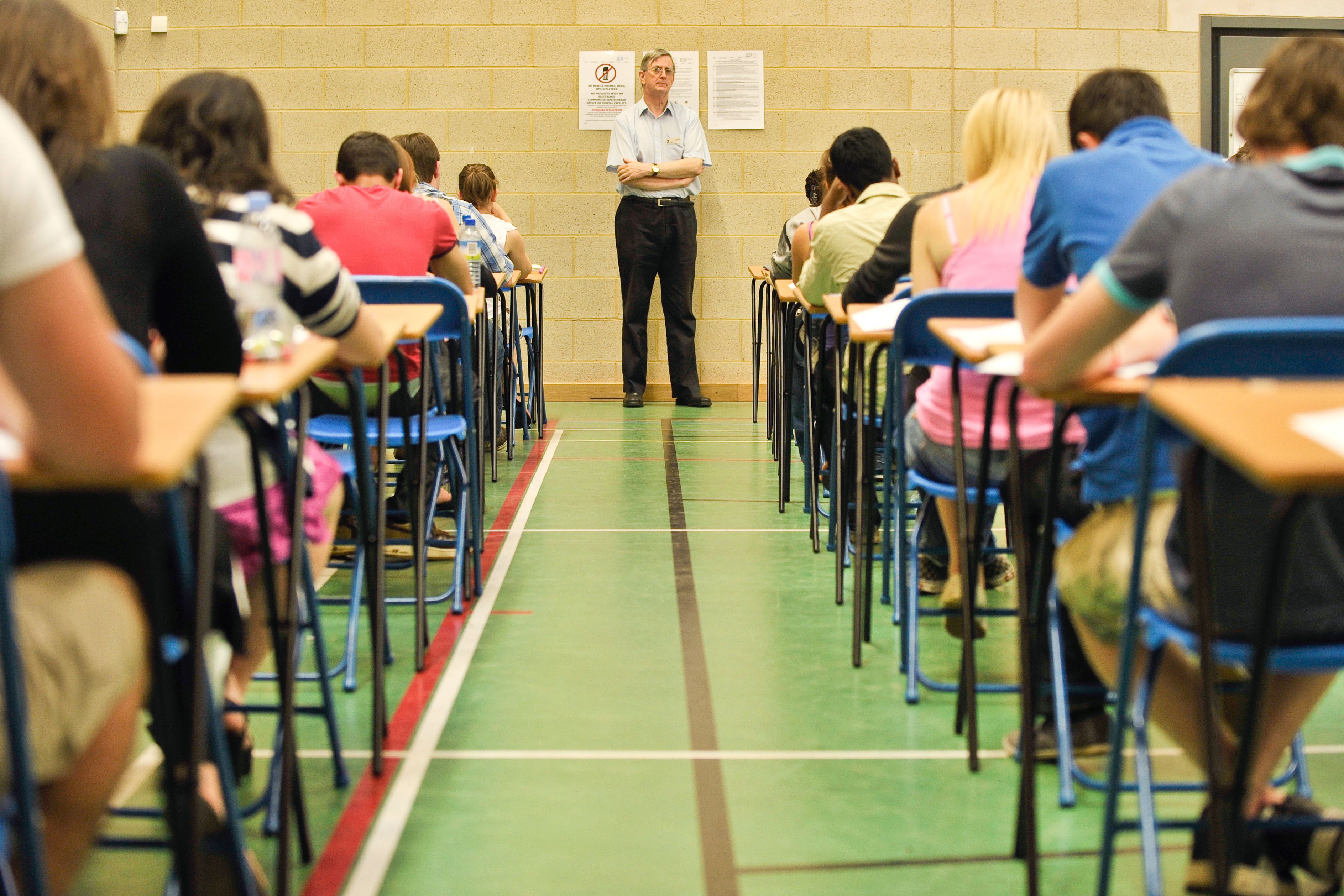Government must rethink ‘demoralising’ compulsory GCSE maths and English resits
It is ‘soul-destroying’ for pupils in England to have to continually retake the exams, an education expert has suggested.

Your support helps us to tell the story
From reproductive rights to climate change to Big Tech, The Independent is on the ground when the story is developing. Whether it's investigating the financials of Elon Musk's pro-Trump PAC or producing our latest documentary, 'The A Word', which shines a light on the American women fighting for reproductive rights, we know how important it is to parse out the facts from the messaging.
At such a critical moment in US history, we need reporters on the ground. Your donation allows us to keep sending journalists to speak to both sides of the story.
The Independent is trusted by Americans across the entire political spectrum. And unlike many other quality news outlets, we choose not to lock Americans out of our reporting and analysis with paywalls. We believe quality journalism should be available to everyone, paid for by those who can afford it.
Your support makes all the difference.The new Government should rethink “demoralising” and “soul-destroying” compulsory GCSE resits for pupils who do not achieve a standard pass in English or maths, an education expert has suggested.
Professor Alan Smithers, director of the Centre for Education and Employment Research (Ceer) at the University of Buckingham, said the policy should be replaced with an alternative programme to help teenagers failing the GCSEs “to achieve fluency in handling words and numbers”.
His comments come before pupils in England, Wales and Northern Ireland receive their GCSE results on Thursday, as well as results for many vocational and technical qualifications (VTQs).
My best guess is that the grades will not be very different from what they were in 2023, if anything, falling somewhat
While traditional A*-G grades are used in Northern Ireland and Wales, these have been replaced in England with a 9-1 system, where 9 is the highest.
A 4 is broadly equivalent to a C grade, and a 7 is broadly equivalent to an A.
In England, many students who do not secure at least a grade 4 – which is considered a “standard pass” – in English and/or maths GCSE are required to retake the subjects during post-16 education.
Ahead of GCSE results day this week, Prof Smithers said: “It must be soul-destroying to continually have to re-take English and/or maths. Surely, there is an urgent need for a policy rethink.”
He added: “Although well-intended, it looks to be utterly demoralising to pupils who find difficulty with these GCSEs.
“I would suggest that they do not necessarily embody the grasp of words and numbers that is necessary to cope with life as it is lived.”
Prof Smithers has also suggested GCSEs “should not bear exactly the same name” in England, Wales and Northern Ireland as the qualifications have “grown so far apart” in the devolved nations.
In his report, he said: “At the very least, if they are still to be called GCSEs, the country in which they are obtained should be prominently displayed on the certification and reported on applications.”
In England, exams regulator Ofqual said it expected this year’s results to be “broadly similar” to last year, when grades were restored to pre-pandemic levels.
In Wales and Northern Ireland, exam regulators said they aimed to return to pre-pandemic grading this summer – a year later than in England.
Covid-19 led to an increase in top GCSE grades in 2020 and 2021, with results based on teacher assessments instead of exams.
The issue is not taken as seriously as it should be because boys are still seen as the privileged sex who will eventually come out on top whatever they do at school
But last week, the proportion of A-level entries awarded top grades surpassed pre-pandemic highs.
Prof Smithers said there could be 70,860 fewer GCSE entries graded 7 or above compared with last year if grades are returned to what they were in 2019 in England, Wales and Northern Ireland.
But he added: “My best guess is that the grades will not be very different from what they were in 2023, if anything, falling somewhat.”
Prof Smithers also reiterated calls for an urgent inquiry into the “chronic underperformance” by boys at GCSE, which he said “should be a matter of national concern”.
“If the present situation is allowed to continue, boys are not benefitting from education in the way they should, and the country is wasting a great deal of talent.
“But the issue is not taken as seriously as it should be because boys are still seen as the privileged sex who will eventually come out on top whatever they do at school.”
Prof Smithers also called for the English Baccalaureate (EBacc) – a government measure which aims to ensure pupils take English, maths, science, a humanities subject and a language at GCSE – to be scrapped.
He said: “Subject entries also show that the EBacc has not had the impact that was intended, and it has been superseded as an accountability measure by the more flexible Attainment 8 and Progress 8.
“Nevertheless, the statistics are still collected and published although it has been stuck for a decade. It is time for it to be scrapped.”
A Department for Education spokesperson said: “Young people will be nervously anticipating collecting their GCSE results this week, but they should feel proud of what they have achieved after the disruption of recent years.
“We know there are still inequalities embedded in the education system which is why we are conducting a review of the curriculum to ensure young people get the opportunity to study a broader range of subjects while also gaining the crucial skills that will give them the foundations to succeed in the workplace and throughout their lives, particularly those with Send or from disadvantaged backgrounds.”